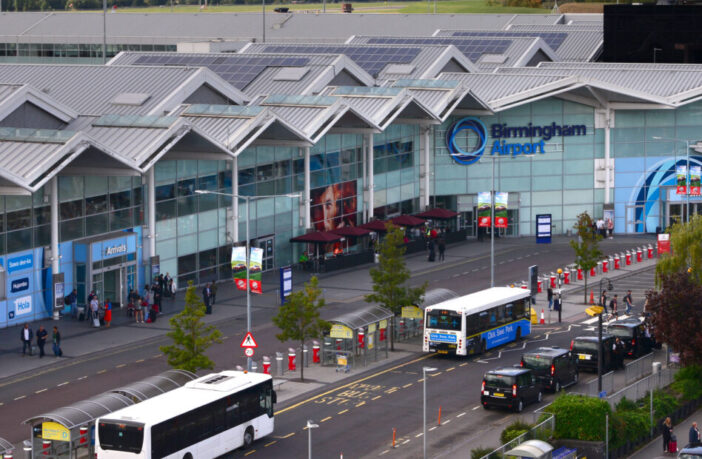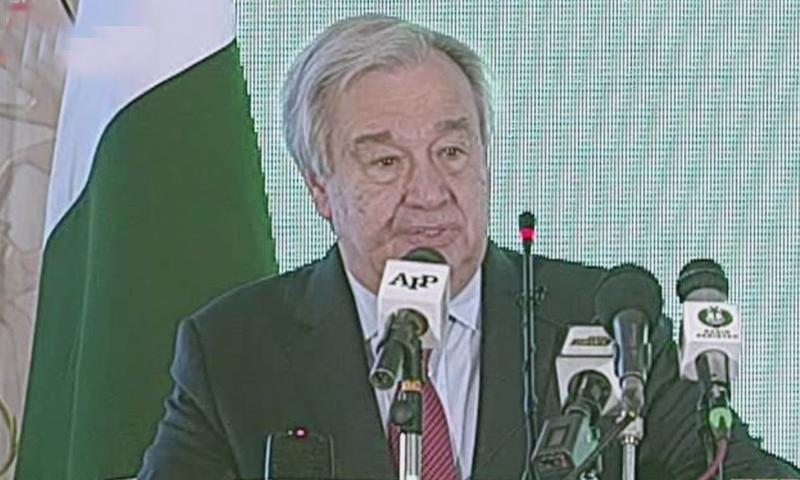Pakistan is facing "a monsoon on steroids", the UN's secretary general has warned, after floods submerged a third of the country.
Antonio Guterres urged the world to come to Pakistan's aid as he launched a $160m appeal to help the tens of millions affected in the disaster.
He blamed "the relentless impact of epochal levels of rain and flooding".
At least 1,136 people have been killed since June and roads, crops, homes and bridges washed away across the country. On Monday, the country's climate change minister Sherry Rehman described the situation as a "climate-induced humanitarian disaster of epic proportions".
This year's record monsoon is comparable to the devastating floods of 2010 - the deadliest in Pakistan's history - which left more than 2,000 people dead. In a video message, Mr Guterres called South Asia a "climate crisis hotspot" where people were 15 times more likely to die from climate impacts.
"Let's stop sleepwalking towards the destruction of our planet by climate change. Today, it's Pakistan. Tomorrow, it could be your country."
He said the UN appeal aimed to provide 5.2 million people with food, water, sanitation, emergency education and health support. Many factors contribute to flooding, but a warming atmosphere caused by climate change makes extreme rainfall more likely.
The world has already warmed by about 1.2C since the industrial era began and temperatures will keep rising unless governments around the world make steep cuts to emissions. Pakistan's planning minister says estimates suggest the floods have caused at least $10bn (£8.5bn) of damage, and many people face serious food shortages.
The country was already suffering from an economic crisis. Vaste swathes of rich agricultural land have been devastated, damaging food supplies and sending prices soaring.
"Things are so expensive because of this flood that we can't buy anything," Zahida Bibi, a shopper at a market in Lahore, said. Officials estimate that more than 33 million Pakistanis - one in seven people - have been affected by the flooding.
The situation is most severe in provinces like Sindh and Balochistan but mountainous regions in Khyber Pakhtunkhwa have also been badly hit. Thousands of people have been ordered to evacuate villages cut off in northern Swat Valley where bridges and roads have been swept away - but even with the help of helicopters, authorities are still struggling to reach those trapped.
After flying over the area in a helicopter Prime Minister Shehbaz Sharif said: "Village after village has been wiped out. Millions of houses have been destroyed." Aid is starting to arrive after Pakistan launched its own appeal for help. The United Arab Emirates and Turkey have delivered tents and medicines and the US and Britain have pledged their support.
The IMF said it had approved a $1.2bn loan for the country.











